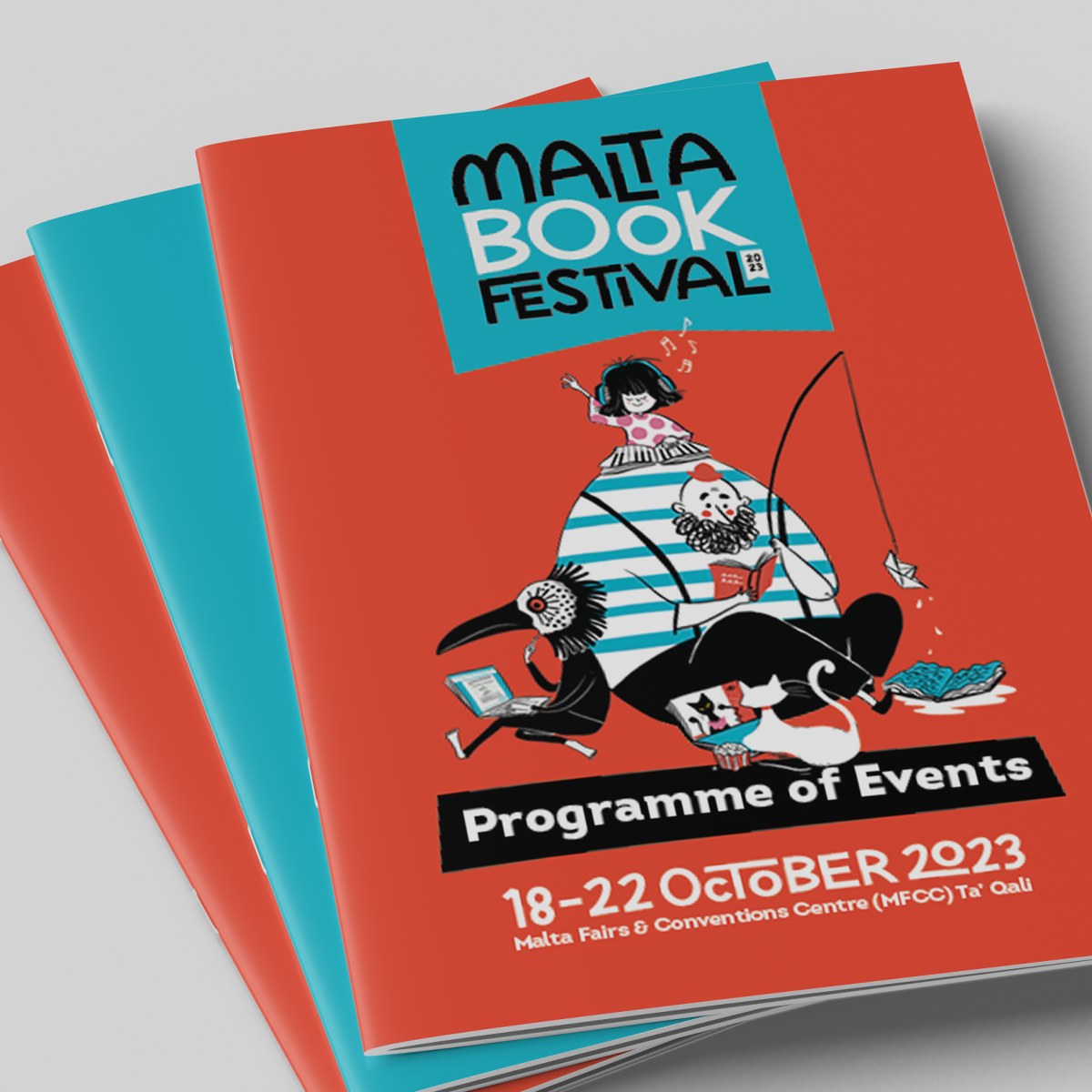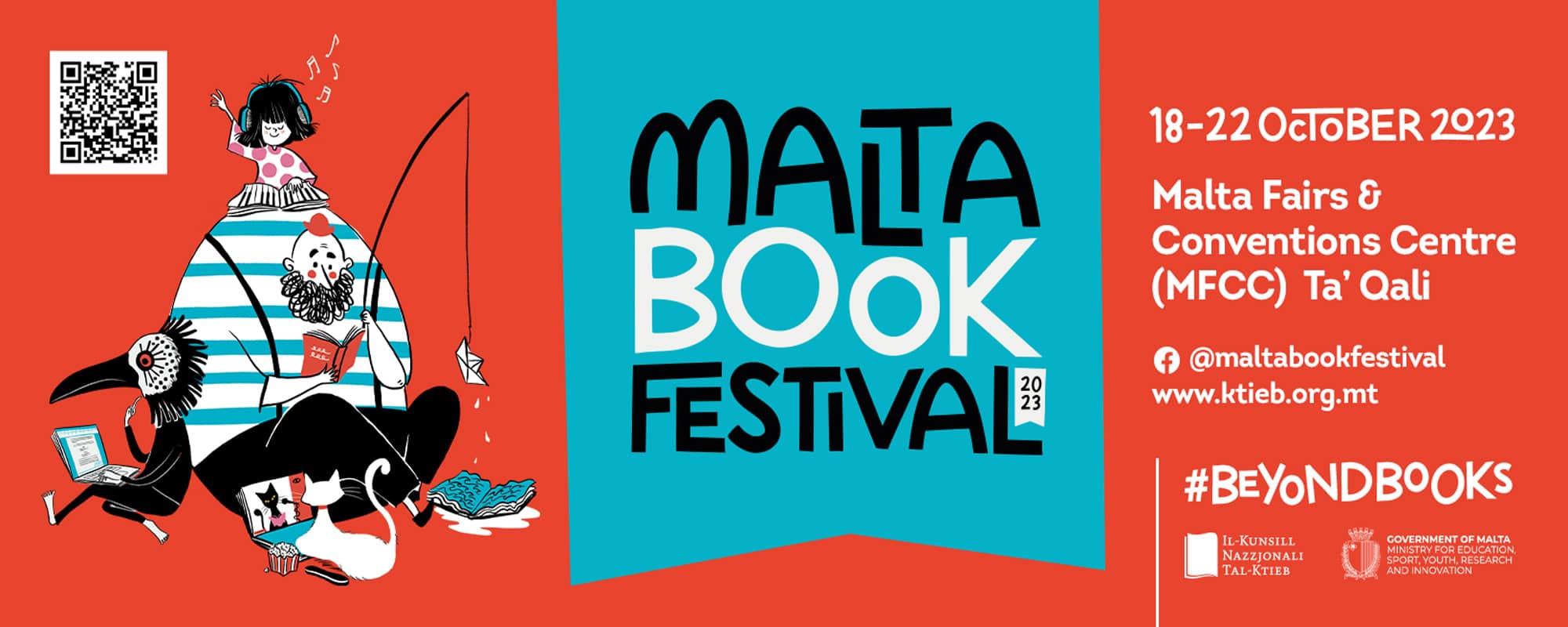Delve into Malta’s burgeoning book scene, boasting 58 publishing entities and a wealth of authors. Uncover the challenges and endeavours championed by the National Book Council. Join us at the Malta Book Festival from October 18-22 at MFCC, Ta’ Qali, for an exciting literary voyage.
Malta boasts 58 registered publishing entities, hosting hundreds of authors writing books across a wide swathe of genres and formats. These numbers emerge from an NSO survey into the book industry, conducted on the basis of the year 2021. Effectively, we could say that there are ‘more authors than churches’ in Malta, with over 700 authors populating the National Book Council’s database.
This hints at a varied industry, the stakeholders of which all fall under the remit of the National Book Council, which seeks to assist, support, and represent Maltese authors and publishers, as well as related industry stakeholders such as translators and illustrators. While the Maltese context does have its own particularities, neither is it immune to the industry’s wider, global realities, a case in point being the price hike on paper caused by the war in Ukraine, which continues to be felt across the board. Maltese publishers must also bear the brunt of this unfortunate phenomenon.
The National Book Council continues to advocate for increased governmental support to aid publishers, whether in this particular challenge or others, and it also offers direct financial aid through the Malta Book Fund, which last year issued a grand total of €120,000 to various industry stakeholders, targeting projects of high cultural value which may not have a straightforward route to market success.
But while some challenges may be met halfway through financial incentives, others require a systemic — or cultural — shift in attitude from all parties involved, which takes a certain degree of workshopping to be borne out. The slow uptake of ebooks bears pondering (the NSO survey saw 146 new ebooks issued in Malta in 2021, contrasted with printed counterparts of 418 in the same year), as does the worryingly high number of authors published without adequate contracts in place.
Besides the glacial uptake of ebooks, language barriers also exist. While it is possible to translate a Maltese book into English (or any other language), the challenge is finding an interested agent or publisher abroad. Even then, it is a matter of targeting and pitching to the right audiences. While the Book Fund comes with a translation strand to help facilitate part of this process, it is only a small step. A more structured, concerted, and self-sustaining internationalisation effort has yet to become a fixed part of Malta’s publishing landscape.
The National Book Council can do its part in helping this process along, with the ultimate aim of allowing all stakeholders to improve their plight in a more autonomous fashion, on the basis of objective industry criteria. The Public Lending Rights Scheme — through which registered authors are remunerated whenever their books are borrowed from local libraries — is a commitment to ensure local authors receive compensation for their work. While the more recent London Book Fair Publishers, Authors, and Translators initiative opens up avenues for international networking which are sorely needed.
Happily, this mission will find active expression in this year’s edition of the Malta Book Festival, taking place between 18 and 22 October at MFCC, Ta’ Qali. The event will feature the presence of London-based literary agent Simon Trewin, who will once again be sharing his insights on the realities of the global market and how Malta can truly play a part in it. This collaboration comes with the long-term goal of allowing the creation of a literary agency to support the local writing community. The literary agency would facilitate the acquisition of foreign rights, and establish a benchmark for standards which would empower stakeholders to think internationally.
Similarly, bestselling Irish author Sam Blake will generously share her time and expertise with aspiring writers from a variety of age groups, who are keen on polishing their work and getting it ready for market. In this way, the Festival will not only be a ‘passive’ showcase of international talent, but offer an opportunity for local audiences to engage with established practitioners. And the involvement of Maltese-founded, UK-based Praspar Press (also featured in THINK) is a succinct expression of this effort. Praspar Press will be launching the third edition of their Scintillas anthology at the festival: a volume showcasing short fiction, non-fiction and poetry written in or translated into English. The micro-publisher’s founding duo will also be a delivering a workshop on editing, and their unique position as Maltese practitioners with a deep knowledge of the UK market will certainly serve as added value for attendees.
A single festival cannot resolve all of the challenges faced by the local book industry. But mapping out the way forward is within the realm of possibility, and exciting times may lie ahead if we all play our cards right.
The Malta Book Festival will be taking place between 18 and 22 October at the MFCC, Ta’ Qali. See the full programme on the National Book Council’s website, here.






Comments are closed for this article!